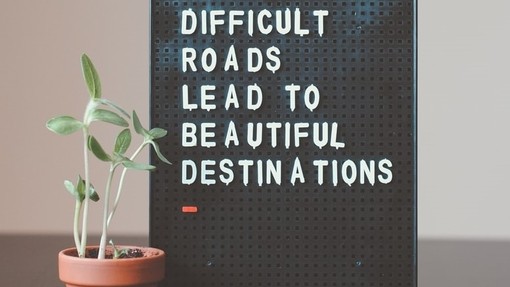
How to navigate a 'Covid shaped' gap in your CV
CV gaps aren’t new, but after another year of upheaval, many people have experienced big changes to their careers they didn’t expect. So, how should you handle these when applying for jobs?
As a recruiter, we’re on the front line of the recruitment industry, speaking with candidates and clients every day. One big talent trend we’re seeing is that career gaps are becoming less of an issue for employers in the wake of the pandemic. However, it can still be a daunting task to explain yourself, so there are a few tips that can help when thinking about how you handle them.
Be honest: you can keep your reason for a break short and sweet if you like, but don’t lie about it.
Take the opportunity to talk about transferable skills, whether gained through a course, a completely different role, or activities in your personal life.
Try not to let unexpected changes hit your confidence – lots of people have experienced upheaval, and employers appreciate resilience.

The COVID-19 outbreak impacted more than just people’s health globally; with social, economic and labour implications, it bought life as we know it to a dramatic stop. With certain sectors booming, such as software & tech, entertainment and supermarkets, others came to an altogether halt like retail, hospitality, education and travel. As a result, millions were left jobless or placed on Furlough which left COVID-shaped gaps in their CV.
However, the long-held stigma over career gaps that have discouraged people from applying for jobs is now a thing of the past. A lot of us were forced to stop working for others and work instead on our own health and safety, it is now expected that most may have a gap in their work. Recent reports indicate that hiring increased a mere 3.5% from March to April 2020, whereas it increased a whopping 69% from March to April 2021.
It’s understandable and almost expected that we will have these gaps, but it’s what you’ve done during your time away from work that’s crucial: what new skills did you learn or what certificates did you gain? Did you take time for your own mental health, did you put your energy into caring for others? It’s how you took the time to be creative, innovative, resilient or patient that is important, gaining new skills which help you stand out above the candidate crowd. For many, this has provided a new opportunity for a change in life choices and career paths.
So, how best can you leverage a COVID career gap?
Honesty truly is key
Be honest and transparent about the gap. It’s not an issue to have time out whether from Furlough, Flexi-Furlough, redundancy or whether you lost work through self-employment etc. What truly matters is to explain to your new potential employer what you were doing during this period. Be honest about the length of time you were out of work: was it temporary? Was it for several months whilst you cared for a family member or took the time to learn a new skill and reset your career path completely?
All these things are perfectly normal and expected by recruiters, so it’s best to be candid from the off as many employers will request references later down the line.
Take the initiative; utilise transferrable skills and behaviours
Being unemployed is far from ideal but realign your thinking to see how you can leverage this employment break as an opportunity.
Did you use the time to take care of yourself or others? Did you develop skills you never thought you’d achieve with a full-time role on hand? Did you expand your knowledge or skills using online courses or webinars? Did you volunteer your time in your own community? Did you learn a new language, new instrument, take up a new interest such as painting or learn how to code?
All knowledge is valuable! The things you achieved during this time, either personal or professional can easily be reframed to show employers why you’re a great asset. So, take the opportunity to talk about transferable skills, whether gained through a course, a completely different role, or activities in your personal life. Self-reflection on what you learnt during your time away from work and how it may have developed you as a better person and therefore, a better employee, is something employers love to see. Staying active and involved in your own development, despite unemployment, shows you are a person of growth, resilience, and integrity.
Top tip: To prevent your CV from being penalised by automated CV filtering systems, present your career gap as a project or role with dates.
Showcase resilience through self-care
Try not to let unexpected changes hit your confidence – lots of people have experienced upheaval, and we know that increasingly employers are looking for candidates who can demonstrate resilience.
Explain how you visualised where you expected to be next year, how you set daily or weekly personal goals to keep focused and rewarded yourself in small, meaningful ways when you meet these goals. Explain how proactive you were, keeping a focus on maintaining a level of resilience, by prioritising your mental health, staying healthy and well. With the increased focus on mental health and work- life balance, it is often considered a good idea to seek some time off the working career.
Many people across the talent landscape will have Covid shaped gaps in their CV, and we’re working hard to educate employers on the benefits of considering applicants who have gaps in their employment. Remember, you don’t have to justify a covid gap just use it as an opportunity to demonstrate you had the time to rediscover, reinvent and grow as a person. Just as Thanos’ snap altered the course of the Marvel cinematic world, the pandemic more dramatically altered the course of ours. But Spiderman wasn’t frowned upon for his absence, so why should you be?
Want to change your career path post-COVID or put your freshly created CV into action? Search for a new career opportunity here.
















